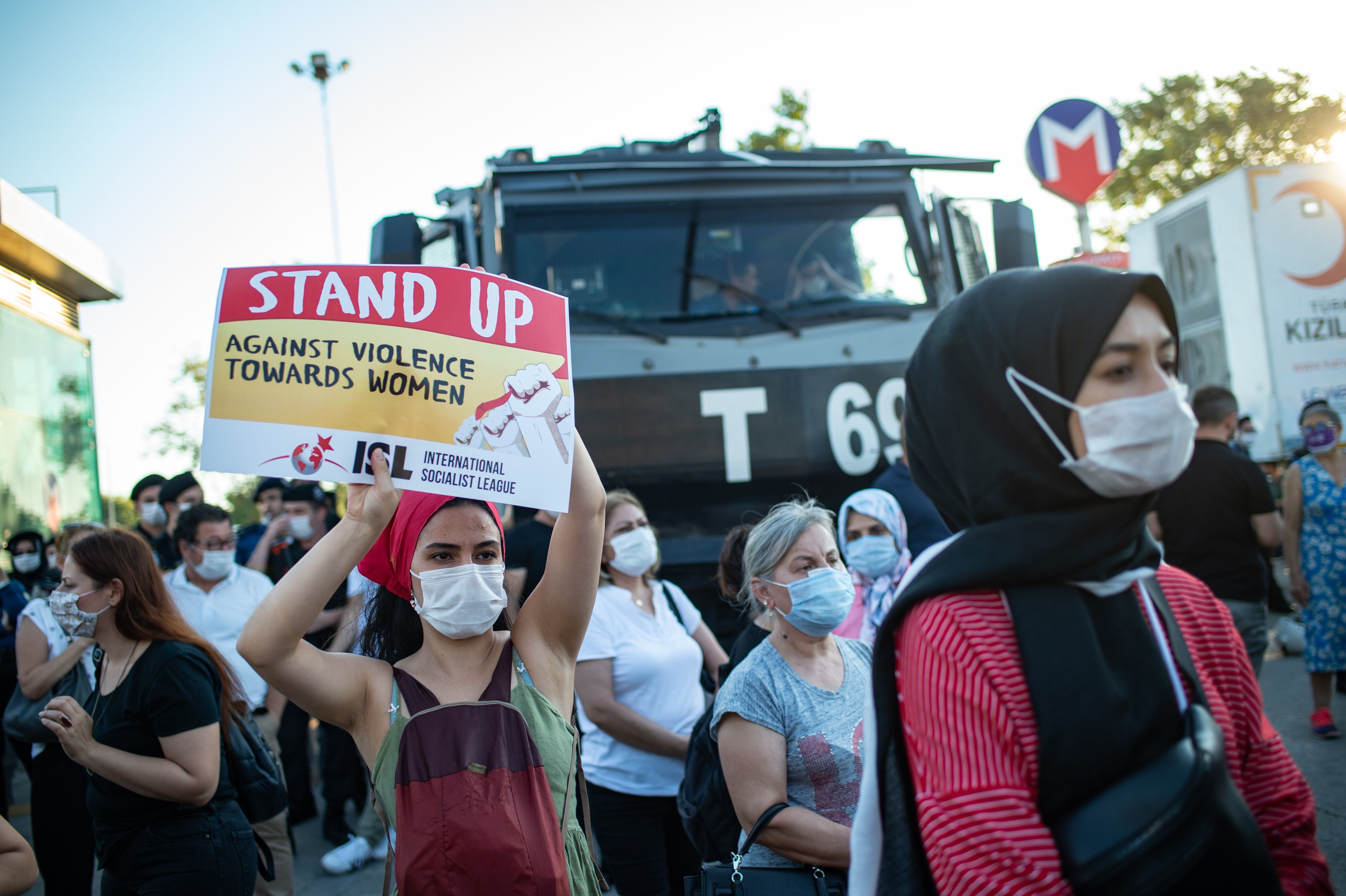Turkey quits treaty to stop violence against women
Many conservatives in Turkey and in Erdogan’s Islamist-rooted AK Party say the pact undermines the family structures that protect society

Your support helps us to tell the story
From reproductive rights to climate change to Big Tech, The Independent is on the ground when the story is developing. Whether it's investigating the financials of Elon Musk's pro-Trump PAC or producing our latest documentary, 'The A Word', which shines a light on the American women fighting for reproductive rights, we know how important it is to parse out the facts from the messaging.
At such a critical moment in US history, we need reporters on the ground. Your donation allows us to keep sending journalists to speak to both sides of the story.
The Independent is trusted by Americans across the entire political spectrum. And unlike many other quality news outlets, we choose not to lock Americans out of our reporting and analysis with paywalls. We believe quality journalism should be available to everyone, paid for by those who can afford it.
Your support makes all the difference.Turkey officially withdrew on Thursday from an international treaty to prevent violence against women, enacting a decision that drew condemnation from many Turks and Western allies when President Tayyip Erdogan announced it in March.
Thousands were set to protest across Turkey, where a court appeal to halt the withdrawal was rejected this week.
“We will continue our struggle,” Canan Gullu, president of the Federation of Turkish Women’s Associations, said on Wednesday. “Turkey is shooting itself in the foot with this decision.”
She said that since March, women and other vulnerable groups had been more reluctant to ask for help and less likely to receive it, with Covid-19 fuelled economic difficulties causing a dramatic increase in violence against them.
The Istanbul Convention, negotiated in Turkey’s biggest city and signed in 2011, committed its signatories to prevent and prosecute domestic violence and promote equality.
Ankara’s withdrawal triggered condemnation from both the United States and the European Union, and critics say it puts Turkey even further out of step with the bloc that it applied to join in 1987.
Femicide has surged in Turkey, with one monitoring group logging roughly one per day in the last five years.
Proponents of the convention and related legislation say more stringent implementation is needed.
But many conservatives in Turkey and in Erdogan’s Islamist-rooted AK Party say the pact undermines the family structures that protect society.
Some also see the Convention as promoting homosexuality through its principle of non-discrimination on grounds of sexual orientation.
“Our country’s withdrawal from the convention will not lead to any legal or practical shortcoming in the prevention of violence against women,” Mr Erdogan’s office said in a statement to the administrative court on Tuesday.
This month, Council of Europe Commissioner for Human Rights Dunja Mijatovic sent a letter to Turkey’s interior and justice ministers expressing concern about a rise in homophobic narratives by some officials, some of which targeted the convention.
“All the measures provided for by the Istanbul Convention reinforce family foundations and links by preventing and combating the main cause of destruction of families, that is, violence,” she said.
Reuters
Subscribe to Independent Premium to bookmark this article
Want to bookmark your favourite articles and stories to read or reference later? Start your Independent Premium subscription today.
Join our commenting forum
Join thought-provoking conversations, follow other Independent readers and see their replies
Comments